Signs That You Will Be Approved For Social Security Disability (2025)
Applying for Social Security disability benefits, including Social Security Disability Insurance (SSDI) and Supplemental Security Income (SSI), can be quite challenging. The waiting period for an initial decision often lasts around eight months or longer, creating a sense of uncertainty. If your initial application is denied, the appeals process can significantly extend this timeline, sometimes taking another year or more.
While the SSA doesn’t offer specific “hints” about the outcome of your claims, understanding key factors can give you an insight into your case’s strength. Focus on a comprehensive assessment of your situation, taking into account your medical condition, age, work history, and education level, as these elements often contribute to a “strong case” for disability benefits.
Here are the most critical indicators that suggest your Social Security disability claim has a higher likelihood of approval in 2025:
Consistent and Specialized Medical Care: The Cornerstone of Your Claim

The SSA considers regular interaction with healthcare professionals as strong evidence of both the seriousness of your medical condition and your dedication to managing it. This includes:
- Regular Appointments with Specialists: Keeping a record of routine visits with relevant specialists is important. For instance, consult a neurologist for conditions like Multiple Sclerosis, a cardiologist for heart disease, etc. The consistency of these appointments emphasizes your ongoing medical needs and proactive approach to care.
- Specialized Expertise and Diagnostic Rigor: Treatment from specialists carries significant weight as it shows a deeper level of medical understanding and intervention for your specific condition. They often use advanced diagnostic procedures and have a better grasp of complex medical issues. This means they can provide stronger evidence for your claim.
- Following Prescribed Treatment Plans: Sticking to prescribed treatments—medications and various therapies—demonstrates to the Social Security Administration (SSA) that you are trying to improve your health. This is crucial because your condition must prevent you from engaging in substantial gainful activity (SGA).
- Comprehensive Medical Records: Your medical records must clearly document your diagnoses using recognized codes (like those from the International Classification of Diseases, 10th Revision, Clinical Modification [ICD-10-CM]), a timeline of your symptoms (onset, frequency, duration, severity), and treatment plans along with your responses. It’s crucial to also detail the specific functional limitations caused by your condition.
Significant Hospitalizations: Evidence of Severe Impairment
Hospitalization or active participation in intensive outpatient programs (IOPs) for mental health or physical rehabilitation indicates significant impairment. The SSA recognizes that these intensive interventions are often necessary for those unable to function independently or engage in work-related activities.
- Physical Health Crises: Hospital stays for acute episodes or chronic condition management provide strong evidence of severe physical limitations. Key medical documentation includes discharge summaries and physician notes detailing reasons for admission.
- Mental Health Emergencies: For disability benefits related to mental health, records of psychiatric hospitalizations or involvement in IOPs demonstrate the seriousness of the condition and the needed support.
Age 50 or Older: Vocational Rules Recognizing the Challenges of Older Workers
As consistently emphasized by the SSA’s vocational guidelines, age is a substantial factor in their disability evaluation process. Individuals age 50 and older often experience a higher rate of claim approval due to the SSA’s acknowledgment that older workers typically encounter greater obstacles in adapting to new types of work.
- “Closely Approaching Advanced Age” (50-54): The Social Security Administration (SSA) has specific rules for this age group, evaluating whether your impairments prevent you from doing your past work.
- “Advanced Age” (55 and Older): In this category, the SSA has a greater burden to prove that you can adapt to new employment, focusing on whether your medical conditions prevent you from meeting the demands of your previous jobs.
- Reduced Retainability: The SSA acknowledges that older individuals often find it challenging to acquire new skills or retrain for different careers, which impacts their decision-making.
Physically Demanding Past Work: Limitations Preventing Return to Prior Labor

If your work history consists mainly of physically demanding jobs that you can no longer perform due to medical conditions, this can significantly support your disability claim.
- Residual Functional Capacity (RFC) Assessment: The Social Security Administration (SSA) conducts an RFC assessment to evaluate your ability to perform various work-related activities despite your medical limitations. This assessment categorizes functional abilities into exertional levels, from sedentary (primarily sitting) to very heavy (lifting over 100 pounds).
- Inability to Perform Past Relevant Work (PRW): If the RFC assessment shows you can no longer meet the physical demands of your previous jobs, the SSA will assess whether you can perform other types of work, considering your age, education, and transferable skills.
- Limited Transferable Skills: If your physically demanding jobs did not provide easily transferable skills for less strenuous occupations, such as cognitive abilities or communication skills, this can strengthen your disability argument. The SSA uses resources like the Department of Labor’s Dictionary of Occupational Titles (DOT) and O*NET to evaluate the skill level of your past work and its transferability to other available jobs.
Comprehensive and Well-Documented Medical Evidence
Robust and meticulously documented medical evidence is the cornerstone of any successful Social Security disability claim. This includes:
- Objective Medical Findings: This includes reports from various diagnostic tests such as X-rays, MRIs, CT scans, EEGs, EMGs, and blood tests, along with detailed notes from your doctors and evaluations by specialists that provide verifiable evidence of your medical conditions.
- Symptom Description and Impact: Provide clear descriptions of your symptoms, including their nature, frequency, duration, and intensity. It is important to explain how these symptoms affect your ability to perform daily activities and work-related tasks such as sitting, standing, walking, lifting, concentrating, and interacting with others.
- Supportive Statements from Physicians: Include clear and persuasive statements from your treating doctors detailing your medical conditions and the resulting functional limitations. Their professional opinions regarding your ability to engage in substantial gainful activity can significantly influence the evaluation process.
Strategic Disability Advocate Guidance
While not a guarantee of a favorable outcome, securing help from experienced representatives may significantly enhance your chances of claim approval.
As a member of the National Organization of Social Security Claimants Representatives (NOSSCR), Trajector Disability Is dedicated to obtaining disability insurance and SSI benefits for genuinely disabled people. Our trusted network of advocates can provide you with local, personal service in pursuing your Social Security Disability claim.
When partnering with Trajector Disability, we can:
- Help you decide which benefit programs you should pursue.
- Help you find free or reduced cost clinics in your area.
- Help obtain medical records and opinions from your treating sources.
- Help you determine your assets when filing for all benefit programs that have income requirements.
- Prepare you for hearings because we know your region, we know your judge and we know how to give you the best chance of success possible.
Whether you’re just beginning the process of applying for disability benefits or have been denied and are fighting for your benefits, we can help.
Frequently Asked Questions (FAQs) About Social Security Disability in 2025:
What should I do if my initial disability application is denied?
If your initial disability application is denied, you have the right to appeal the decision. The first stage of appeal is Reconsideration, where your case is reviewed by someone who did not make the initial decision. If your reconsideration is also denied, you can request a hearing before an Administrative Law Judge (ALJ). Most claims are denied at the initial level. Don’t give up! Wherever you are in the disability claims process, there is a way forward. We can help.
How long does the Social Security disability appeals process typically take?
The duration of the Social Security Disability appeals can vary depending on the level of appeal and the backlog in your local hearing office.
Can I still work while applying for Social Security disability benefits?
You can still work while applying for disability benefits, but your earnings will be closely scrutinized by the SSA. You can read more about it in our article “Working While on SSDI: Understanding SGA, Trial Work Period and Work Incentives.”
How does the SSA evaluate mental health conditions for disability benefits?
The SSA evaluates mental health conditions using the same general disability criteria as physical impairments. They will review your psychiatric evaluations.


